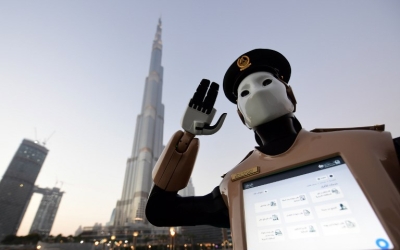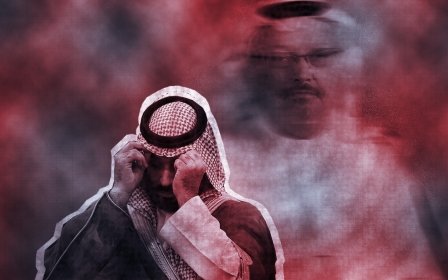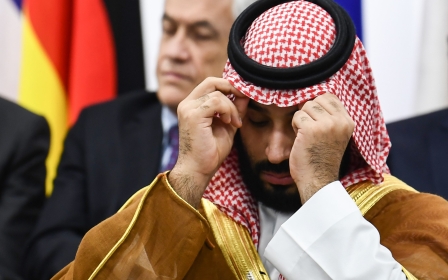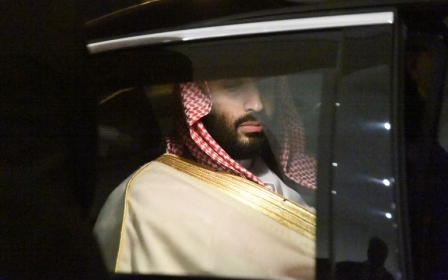Saudi Twitter spies: In the kingdom of silence, even silence is not allowed
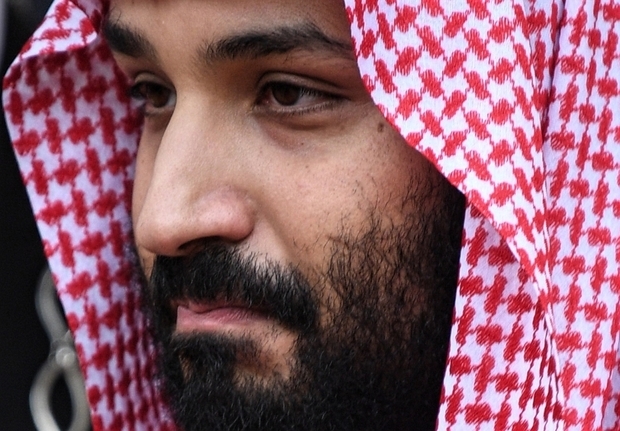
The US government has charged two former Twitter employees with spying for Saudi Arabia, after they allegedly infiltrated the personal data of more than 6,000 Twitter accounts, including that of a prominent dissident who later became close to journalist Jamal Khashoggi.
The employees were allegedly recruited by a Saudi agent who lavished them with tens of thousands of dollars and expensive gifts. Their mission was allegedly to funnel personal information about critics of the regime to Bader al-Asaker, on behalf of Crown Prince Mohammed bin Salman.
Asaker may now be sitting in the crown prince’s office, pondering how to contain the latest scandal and reinvent the kingdom’s image as a safe haven for tourism and heritage trips.
Following this latest scandalous episode, the Twitter tyrant has fallen again from his ivory tower, with his agents and emissaries exposed around the globe.
Social media activism
Yet the repressive Saudi regime has not yet banned Twitter and other social media, for several reasons. Bin Salman wanted to inaugurate a new era of social media connectivity, allowing him to launch propaganda campaigns alongside his many so-called reforms. He knew that Saudi youth were already immersed in social media activism, voicing their aspirations and criticisms of the regime.
By the time bin Salman had been elevated to the position of crown prince in 2017, Saudi youth were already among the most active hashtag generations in the world, going online to voice their resistance, express grievances and call on the regime to honour its many pledges to ameliorate their lives.
Demanding affordable housing and jobs, Saudi youth exposed the cracks in the state’s official propaganda and rhetoric.
This virtual parliament has been appropriated by the crown prince, turned into a propaganda machine for his own lies and illusions
More recently, they trashed bin Salman’s slogan and hashtag, “Saudi Arabia is Great,” by pointing out that this is mere propaganda that fails to cover up the cracks in the system - above all, the unjust detentions and torture of prisoners of conscience.
Exiled activists in the US launched a counter hashtag to thwart this ill-defined greatness, which is not felt by millions of Saudis.
Young unemployed Saudis also launched their own hashtag, “Forum for Unemployed Saudis,” to highlight the buried aspirations of an educated generation that has yet to find employment under Vision 2030, the prince’s blueprint for national regeneration.
Saudi youth have effectively created their own Twitter parliament, where they can discuss and debate their concerns. But alas, this virtual parliament has been appropriated by the crown prince, turned into a propaganda machine for his own lies and illusions.
Monitoring dissent
Bin Salman’s many apostles have struggled to counter online Saudi youth resistance, which has migrated to the diaspora.
As the crown prince tightened his grip on social media and employed an electronic army to spread lies and monitor dissident voices - leading to severe punishments - exiles in the diaspora took the lead, continuing the struggles of their counterparts inside the country.
The crown prince uses Twitter to monitor dissent and catch dissidents, including the activism of Saudis abroad. Students’ academic and social media activities are closely watched, with local consulates dispatching files to Riyadh. Critics are told by consulate staff that their passports cannot be renewed unless they go back to their home country.
Both the son of detained Sheikh Salman al-Odah, Abdullah, and activist Omar al-Zahrani told me in an interview that they faced the suspension of their scholarships and the refusal to renew their passports. Both have applied for asylum and were granted residence in the US and Canada respectively.
Other Saudis have been stranded in Canada, Europe and Australia because their passports expired and the host countries are yet to grant them asylum or residence.
They are the new Saudi diaspora. The regime’s Twitter spies were part of the machine to report on and harm those exiles - especially active and outspoken ones, such as Zahrani, who has become a media resistance icon.
Twitter is still functioning in Saudi Arabia - albeit to aid the promotion of the crown prince - to help the regime assess the public mood. In a country where freedom of speech is suppressed and political organising is banned, there is only one voice: that of the regime’s propaganda machine. Yet, the regime wants to find out what Saudis are thinking, and how they are reacting to the state’s multiple adventures at home and abroad.
Riyadh's watch list
Twitter has proved to be a good listening device - not only to catch and punish dissent, but also to see who is praising the regime, so that they can be rewarded. Being silent is, in itself, a crime, as Saudis are now expected to march to the beat of the crown prince’s drums. Those who don’t will probably be put on a watch list, lest they slip into becoming critics.
In the kingdom of silence, even silence is not allowed. This is the unfortunate story of Sheikh Salman al-Odah, who maintained his silence over Riyadh’s rift with Doha and only once asked God to bring Muslims together, alluding to a reconciliation with Qatar.
He was arrested in 2017 and is awaiting trial by a court under the thumb of the crown prince.
The crown prince will face real challenges if he ever aspires to relaunch his image, which has been deeply tarnished, as he is held responsible for violating the most cherished international norms relating to the sovereignty of embassies and the taboo of murdering and chopping up journalists abroad - not to mention the killing of thousands of Yemenis in a five-year war that has devastated the country.
Those who still linger in prison - a large and diverse cohort of religious scholars, poets, feminists, tribal chiefs and professionals, among others - must be freed immediately, as a first step towards achieving justice. But the image of the crown prince is most probably tarnished beyond repair.
The views expressed in this article belong to the author and do not necessarily reflect the editorial policy of Middle East Eye.
Middle East Eye propose une couverture et une analyse indépendantes et incomparables du Moyen-Orient, de l’Afrique du Nord et d’autres régions du monde. Pour en savoir plus sur la reprise de ce contenu et les frais qui s’appliquent, veuillez remplir ce formulaire [en anglais]. Pour en savoir plus sur MEE, cliquez ici [en anglais].




